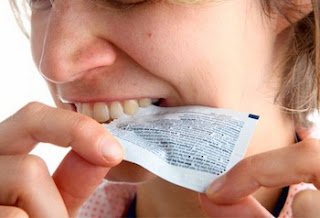(CNN) -- For all intents and purposes, we really get only one shot to take care of our teeth.
The good news is, science and research have taken a front seat in dental education, making today's dentist savvy on "prevention" dentistry rather than the "drill, fill and bill" mentality of decades ago.
Things like adhesive dentistry, recalcification and dental implants have given dentists more options. But for many patients, it's a lot of information to process.
Here are five ways you can ensure that you hang on to your teeth as you age:
Educate yourself on dental careDentistry today has taken a much more conservative approach. But it can be hard to know what your options are. Here are some key points that you should know about dental treatment.
• Small cavities can be recalcified. Strong doses of fluoride, or something called MI Paste, applied directly to small cavities can actually recalcify or rebuild the enamel, removing the need for a filling.
5 things to do at the dentist's officeThat said, the key to recalcification is early detection. Regular dental visits are crucial to early detection.
• Fillings, crowns or any dental restoration should be replaced or heavily scrutinized every eight years.
Some patients are of the "if it ain't broke, don't fix it" era. But the reasoning behind this advice is to eliminate the spread of recurrent cavities that lurk under dental restorations.
The longer you wait to replace dental restorations, the more problems you can run into. If the decay spreads undetected, it may eat up too much healthy tooth structure and need the support of a crown or reach the nerve and need a root canal.
• Make sure your children are getting fluoride treatments until at least the age of 15. Kids, especially, consume a lot of sugar, which breaks down into a biproduct of acid that erodes teeth, quickly causing cavities. Fluoride is a great treatment in rebuilding enamel and neutralizing those acids.
Use an electric toothbrushIn dentistry, the electric toothbrush has been one of the biggest advances in home dental care. Ninety-nine percent of patients don't really know how to brush with a manual brush and, more important, don't brush for the full two minutes needed.
The dental screening that could save your life
Electric toothbrushes remove the confusion and have a timer to ensure that the full brushing is done at each session. Improper brushing can lead to plaque buildup, swollen gums, cavities and overall poor oral health. The sonic brushes remove plaque and get into hard-to-reach places like in between teeth and under the gums to ensure a healthy mouth.
If you grind or clench, wear a night guard
Grinders can wear away a millimeter of tooth structure per year if undiagnosed. Clenchers may not see any immediate signs of wear on their teeth, but the pressure that clenching puts on your teeth is destructive. It slowly breaks down the supporting bone around the teeth, leading to gum recession, bone loss and inevitably tooth loss.
If you feel that you may fall into either of these categories, you should be wearing a night guard. It may not be sexy, but it's much sexier than missing teeth.
Know what oral hygiene regimen is right for you
Today, there has been a lot of money and research into better oral care products. But understand that there is an actual regimen of toothpaste, mouth rinse and "extra-care" products that's right for you.
The first step is defining what "type" of patient you are. I like to break it down into four basic types: cavity-prone, sensitive, stainers and those with bad gums.
Baby's teeth: What you should knowYou can ask your dentist which category you fall into. Each product in the sea of dental products in the drugstore has key ingredients tailored for each category of patient. Using the right oral care products can make a big difference in the longevity of your teeth.
Choose the right dentist
Fortunately -- or unfortunately -- your dentist has a lot to do with the preservation of your teeth. Make sure your dentist is up on all current research and his office is updated and state-of-the-art, but most important, make sure your dentist is taking time and looking after you. It sounds simple, but it's probably the most important item on your checklist.
By Dr. Michael Apa, Special to CNN
http://edition.cnn.com/2013/12/09/health/preserve-teeth-apa/
December 10, 2013 -- Updated 2245 GMT (0645 HKT)
 Opening bottle caps or plastic packaging with
your teeth may be convenient, but this is one habit that makes dentists cringe.
Using your teeth as tools can cause them to crack or chip. Instead, keep
scissors and bottle openers handy. Bottom line, your teeth should only be used
for eating.
Opening bottle caps or plastic packaging with
your teeth may be convenient, but this is one habit that makes dentists cringe.
Using your teeth as tools can cause them to crack or chip. Instead, keep
scissors and bottle openers handy. Bottom line, your teeth should only be used
for eating.



